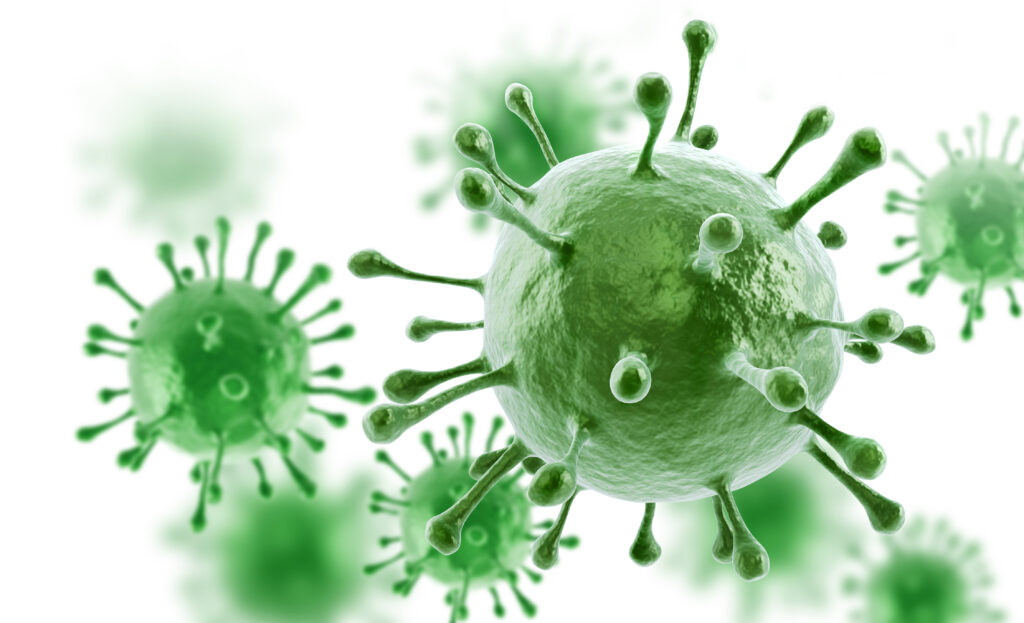Engineered Viruses Help the Immune System Target Cancer Cells
Engineered Viruses Help the Immune System Target Cancer Cells https://pediatricsnationwide.org/wp-content/uploads/2022/04/AdobeStock_64545366-web-crop-1024x623.jpg 1024 623 Lauren Dembeck Lauren Dembeck https://pediatricsnationwide.org/wp-content/uploads/2021/03/Dembeck_headshot.gif
The seemingly unlikely “partnership” leads to strong antitumor responses in pediatric tumor models.
A recent study from researchers at Nationwide Children’s Hospital, published in the Journal for Immuno Therapy of Cancer, describes how a type of viroimmunotherapy activates the immune system to preferentially target tumor cells.
“Pediatric tumor typically lack neoantigens – new proteins that form due to mutations in the cancer cells’ DNA because they have not undergone years of environmental damage like adult cells. They can, however, express shared antigens that help them grow,” says senior author of the study Kevin A. Cassady, MD, a principal investigator for the Center for Childhood Cancer and Blood Diseases at the Abigail Wexner Research Institute at Nationwide Children’s.
“We hypothesized that we could help the immune system ‘see’ tumor cells by creating a virus that expresses a shared antigen prevalent on tumor cells. With introduction of the antigen-expressing virus, we break the immune system’s self-tolerance, and the shared antigen is now recognized as foreign by the immune system rather than as a self-antigen, allowing immune cells to develop a response against it,” added Dr. Cassady.
To test this hypothesis, Dr. Cassady and his team used an oncolytic herpes simplex virus (oHSV), which is one of many virus-based platforms that has been safely used in clinical trials for a wide range of cancer types.
Co-first authors of the study Mohammed Ghonime, PhD, cell therapy scientist at CRISPR Therapeutics, and Uksha Saini, PhD, a research scientist in Dr. Cassady’s lab, conducted experiments in two murine tumor models that express high levels of the antigen EphA2. The generated an oHSV encoding the EphA2 antigen and evaluated the immune-mediated antitumor response after mice with malignant brain tumors were treated with the engineered virus.
The team found that the EphA2-expressing oHSC induced antitumor activity and significantly improved survival of the mice relative to those treated with a control virus (no EphA2). Furthermore, when survivor mice given EphA2-expressing oHSV were rechallenged with injection of tumor cells to their flanks, they displayed a memory response, resisting tumor growth. Dr. Saini conducted detailed experiments demonstrating that the viral treatment predominantly induced CD8T cells that recognized the EphA2 antigen and eliminated the tumor cells.
“The immune system was highly activated with a strong antitumor response from a single dose of the virus,” says Dr. Saini. “In addition to the brain tumors, we confirmed the findings in a nerve sheath tumor model, meaning this system could potentially be applied to other tumor types as well.”
This article appears in the 2022 Spring/Summer print issue. Download the full issue.
Reference
Ghonime MG, Saini U, Kelly MC, et al. Eliciting an immune-mediated antitumor response through oncolytic herpes simplex virus-based shared antigen expression in tumors resistant to viroimmunotherapy. Journal for ImmunoTherapy of Cancer. 2021;9(10):e002939.
Image credit: Adobe Stock
About the author
Lauren Dembeck, PhD, is a freelance science and medical writer based in New York City. She completed her BS in biology and BA in foreign languages at West Virginia University. Dr. Dembeck studied the genetic basis of natural variation in complex traits for her doctorate in genetics at North Carolina State University. She then conducted postdoctoral research on the formation and regulation of neuronal circuits at the Okinawa Institute of Science and Technology in Japan.
- Lauren Dembeckhttps://pediatricsnationwide.org/author/lauren-dembeck/
- Lauren Dembeckhttps://pediatricsnationwide.org/author/lauren-dembeck/
- Lauren Dembeckhttps://pediatricsnationwide.org/author/lauren-dembeck/
- Lauren Dembeckhttps://pediatricsnationwide.org/author/lauren-dembeck/January 29, 2019







